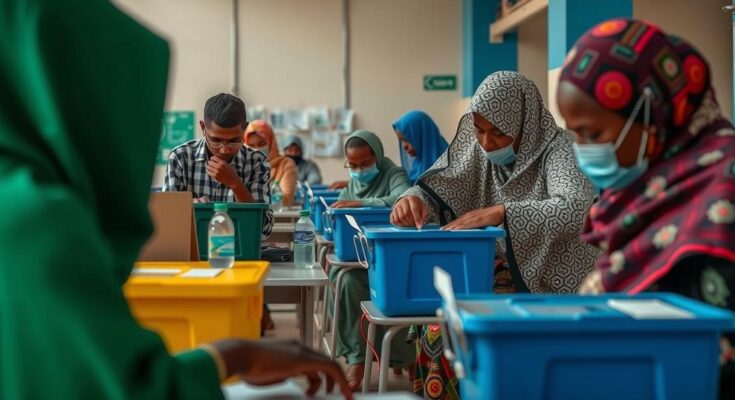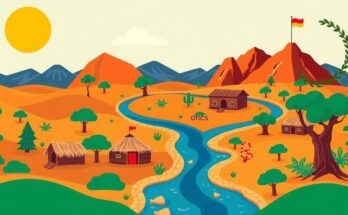Voting is taking place in Somaliland on November 13, 2024, for a presidential election delayed by two years due to political tensions. With over 1 million voters and 28 international observers, candidates include current President Muse Bihi Abdi and challengers Abdirahman Mohamed Abdullahi and Faisal Ali Warabe, each with distinct platforms addressing governance and economic issues.
Voting commenced on November 13, 2024, in Somalia’s breakaway region of Somaliland during a significant presidential election that was postponed for two years. This event takes place amid rising political tensions in the Horn of Africa. Voters are eager to address local issues, notably the desire for economic improvement and job creation. With over 1 million voters and 2,000 polling stations, the election is being documented by approximately 28 international observers. President Muse Bihi Abdi of the ruling Kulmiye Party is seeking re-election after a seven-year term that prioritized Somaliland’s quest for international recognition. His main opponent, Abdirahman Mohamed Abdullahi of the Waddani Party, promotes democratic reforms and social cohesion, while Faisal Ali Warabe of the Justice and Welfare Party advocates for a national unity government. Somaliland declared independence from Somalia in 1991 and has maintained its own governance and security systems despite lacking international recognition. The region has developed a more stable political climate compared to Somalia’s ongoing security challenges. Economic issues had previously led to the election postponement in 2022, while a recent agreement with Ethiopia to access the Indian Ocean has heightened tensions with Somalia. This presidential election marks Somaliland’s fourth of its kind, raising concerns regarding the stability and reliability of its democratic processes.
The context of the presidential election in Somaliland is rooted in its declaration of independence from Somalia in 1991, following a period of conflict. Despite not being recognized internationally, Somaliland has established its own government and currency, creating a relatively stable political and security environment compared to the chaos of Somalia. The recent election is crucial for the continuation of this stability and addressing pressing economic challenges faced by the populace. The postponement of the election two years prior highlights the complex political dynamics and economic strains influencing governance in the region.
The presidential election in Somaliland is a critical event reflecting the region’s aspirations for stability and economic improvement. With over a million voters participating and a competitive political landscape, this election will impact not only local dynamics but also relations with neighboring Somalia and Ethiopia. The outcome will shape Somaliland’s trajectory towards international recognition and internal unity, indicating its commitment to a more democratic and prosperous future.
Original Source: apnews.com




